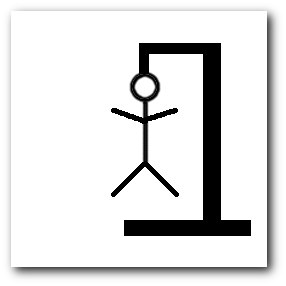I recently watched Sebastian Deterding’s presentation ‘Just Add Points?’. It covers applying lessons learnt from games to software, to make software more enjoyable to use. The talk then goes on to cover where this model traditionally falls down, before rebuilding a model with new rules. The presentation was engaging, very well designed and a good extension of the principles within Ralph Koster’s book, applying its lessons to the real world, and therefore well worth a look.
The presentation first covers ways in which the UX lessons learnt from games have, or can, be applied to dull tasks to incentivise people to do them. Some examples of this can be found on Volkswagen’s thefuntheory.com website, such as turning a staircase into a piano to encourage people to take the stairs, or turning a bottle bank into a game to encourage people to recycle.

all the encouragement I need...
Deterding does provide some critical analysis of this model – what happens on day 2, for example? Is it still fun to recycle? I also question the justification provided by Volkswagen that the bottle bank performed better than a standard one. Although it did in the example, when the user was provided with a choice between two geographically-close bottle banks, this fails to be a conclusive proof of the fun bottle bank being more effective at encouraging recycling. (would the ‘dull’ one receive an equal amount of recycling to the fun one if there was no alternative – what about over a number of months?)
The typical theory of fun is that ‘adding points’ will magically make dull activities fun, because of It adds competition, re-playability, and a new ‘meta-game’ to the activity taking place. However, Deterding’s presentation challenges this, and says that ‘just adding points’ is a too simplistic understanding of the application of fun to menial tasks. Instead, games present an optimized version of many positive psychological features of real life, and through the recognition of this, real life can be optimised.
As I discussed in my review of Ralph Koster’s book, ‘fun’ is the act of learning and successfully applying, and adapting the knowledge learnt, and typically games present an adaption of this. Games optimise ‘fun’ because:
- They allow the construction of clear, realistic goals, with measurable progress
- The goals are presented in a manageable manner, with a clear ‘call to action’, indicating what is to be done, and when it has been achieved
- The player’s current status is clear, and their progress towards the end goal is indicated
- New tasks are built upon knowledge already gained
- Social comparison can be made with your friends to compare progress
So the obvious way of making dull tasks fun would presumably be to integrate these principles from games? However this conflicts with software, and menial tasks, core goals of efficiency. As I’ve noted before, ‘press a button to win’ is effective, but not fun.
Unlike games, software (and menial tasks) doesn’t give designers full control over the environment – instead the user defines the goal (such as ‘write a letter to the TV Licensing people’). This makes direct application of the features from games difficult.

We have taken re _ _ _ sses_ _ _ of your _ a _ s _ _ r
Instead, Deterding presents us with a list of ‘patterns, models and words for emotion and rule design’, that he has derived from games. Unfortunately, they are not as simple as ‘just add points’!.
I highly recommend watching Deterding’s presentation, it is an effective synopsis of a debate that is very much still in progress, and shows us why a simplified or direct application of Ralph Koster’s rules doesn’t work with non-games, despite what Volkswagen have been showing us. Instead, Deterding presents his own models, which are not as simple, or easy, and yet may turn out to be a more practical lesson for how we can apply knowledge from games to improve the user experience of mundane tasks.
Leave a Reply